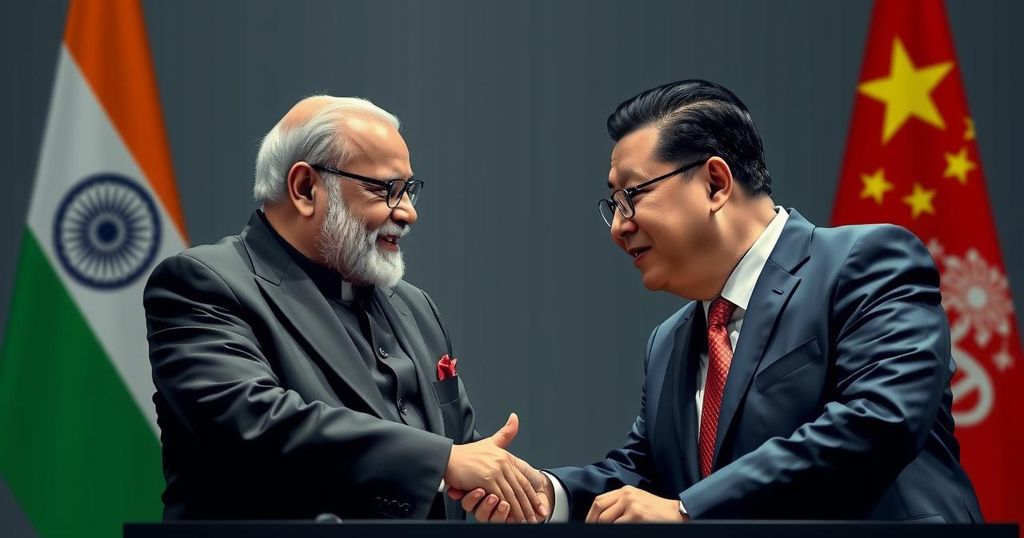Resetting Sino-Indian Relations: Prospects for Dialogue Following Border Detente
At the BRICS summit in Kazan, Russia, Chinese President Xi Jinping and Indian Prime Minister Narendra Modi engaged in their first substantive dialogue in five years, marking a potential reset in their fraught relationship following a violent territorial dispute in 2020. An agreement on military disengagement at the contested border offers hope for improved ties, although uncertainties surrounding the economic nexus and territorial dimensions persist. Amidst this backdrop, India’s strategic balance involving the US remains a concern, as analysts grapple with the implications of this detente.
The recent BRICS summit held in Kazan, Russia, served as a significant backdrop for a renewed diplomatic dialogue between Chinese President Xi Jinping and Indian Prime Minister Narendra Modi. This meeting marked their first comprehensive bilateral discussion in five years, occurring shortly after an agreement was reached for disengagement of troops stationed at the contested India-China border in Ladakh, a region that has seen notable tensions since a violent clash in 2020 resulted in numerous casualties on both sides. Although the specifics of the agreement remain undisclosed, analysts suggest that this breakthrough could have broader implications for geopolitical dynamics in Asia and beyond, particularly in relation to New Delhi’s evolving stance towards its partnership with the United States. In addition to military and territorial disputes, the relationship between India and China has been strained by economic issues, notably following India’s ban on numerous Chinese apps and the exclusion of Huawei from critical telecommunications infrastructure projects. However, as foreign direct investment in India has declined, some policymakers are advocating for a recalibration of economic interactions with China, especially in light of the potential benefits that such investments could bring to key sectors in India’s economy. While the burgeoning dialogue between Xi and Modi offers a glimmer of hope for progress in bilateral relations, lingering uncertainties remain regarding both territorial agreements and economic cooperation, particularly in light of India’s ongoing strategic concerns regarding China.
The diplomatic ties between China and India have historically been fraught with tension, most notably punctuated by the 1962 Sino-Indian War and more recent confrontations along their mutually disputed border. The situation escalated significantly in 2020 with violent clashes in Ladakh, prompting military build-ups and a deterioration in diplomatic relations as both nations engaged in a series of confrontational standoffs. In the context of the broader geopolitical landscape, India has been strengthening ties with the United States and other nations in the region, forming alliances such as the Quad to counter China’s growing influence in Asia. As both leaders met at the BRICS summit, there was cautious optimism that their discussions would signal a new phase of engagement aimed at resolving outstanding issues in their bilateral relationship.
The recent interactions between Presidents Xi Jinping and Narendra Modi represent a crucial step towards mending the historically fraught relationship between China and India. While the agreement on troop disengagement along their contested border is a positive development, the future of this relationship remains uncertain, given the lack of detail surrounding the agreement and ongoing economic and territorial concerns. It remains to be seen how these developments will affect broader geopolitical dynamics in Asia and India’s strategic position in its relations with the United States.
Original Source: www.aljazeera.com




Post Comment